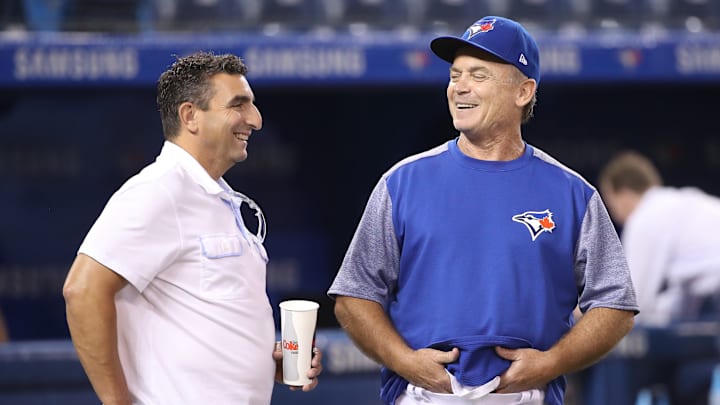Life as an MLB general manager could be very stressful, as they always have to try their best to make their team competitive and give the franchise the best chance to excel and prosper at the same time. However, time and time again, decisions made by the GM could be restricted due to factors that are out of their control, limiting their ability to effectively upgrade a team’s performance.
One of those unfortunate GMs includes former Toronto Blue Jays’ GM J.P Ricciardi. If one could recall, Ricciardi was the Jays’ general manager from 2001 all the way to 2009, which was probably one of the more forgettable stretches in Jays’ history as they failed to make the postseason during that entire decade. But that wasn’t due to the lack of talent, as a matter of fact, Ricciardi had superstars such as Vernon Wells, Carlos Delgado, Alex Ríos, the late Roy Halladay, and others at his disposal to fill out the lineup, so one would expect it should have been an easy job for Ricciardi to manage during those times, right?
Not quite though, because that was life being in the AL East division, with high-payroll dominant teams such as the Boston Red Sox and New York Yankees, as well as the super-farm system of the Tampa Bay Rays keeping those teams perennially in the playoff hunts, and outcompeting the Jays for all of those years. The best finish the Jays could pull off was second place in 2006 with an 87-75 record, but still falling way short of the playoffs by a whopping eight games. They even finished last in the division in 2004. So what gives?
In an interview with Mike Wilner on the Deep Left Field podcast, Ricciardi reflected upon his nine-year tenure with the ballclub.
"I wish we had a few more bullets to fire that we couldn’t. But we had some really good clubs, a lot of good players… I don’t think the division was ever tougher than it was in that 2002 to 2010 period."
See, it was so tough on Ricciardi that he even forgot his time frame as the Jays’ GM was 2001-2009, and not 2002-2010.
He highlighted that it was difficult to make the Jays’ teams competitive due to restricted resources; in particular, a limited payroll that was provided for him to work with that was way below what their nearest competitors were given.
"When you don’t have a lot of money, you got to be resourceful, and you got to be creative. A lot of guys really ended up prospering because of those opportunities. So that was great. Like I said, it was just a really tough division."
Unfortunately for Ricciardi, he tried his best, but couldn’t put together the right pieces to get the Jays over the top during his tenure.
In addition, he recalled the toughest job he had to face was the firing of Jays’ manager John Gibbons in 2008, since they were former roommates in the minor leagues.
"The day we did it, Alex Anthopoulos was in the corner crying ... So it wasn’t like I was surrounded with the greatest support system. It was just… it was hard to do. We really became very, very good friends with a lot of people, and they became like family and obviously Gibby, my relationship goes back so far and wasn’t something I wanted to do… sometimes you just got to separate your business with just the familiarity of people."
So not only was it stressful for Ricciardi to try and always make his ballclub better, but when facing tough business decisions involving those that have become close to him, it becomes a much harder task than expected.
So the next time a baseball GM appears incompetent with their job, think about that there could be more behind it than meets the eye, as every little decision or move would be criticized like crazy, but at times, it could be for reason beyond their control.
One could only wonder had Ricciardi been given the right amount of resources to work with, how far he could have taken the Blue Jays during that decade, especially with Halladay and Wells in their prime. But unfortunately, we are only left with “what if” thoughts.
